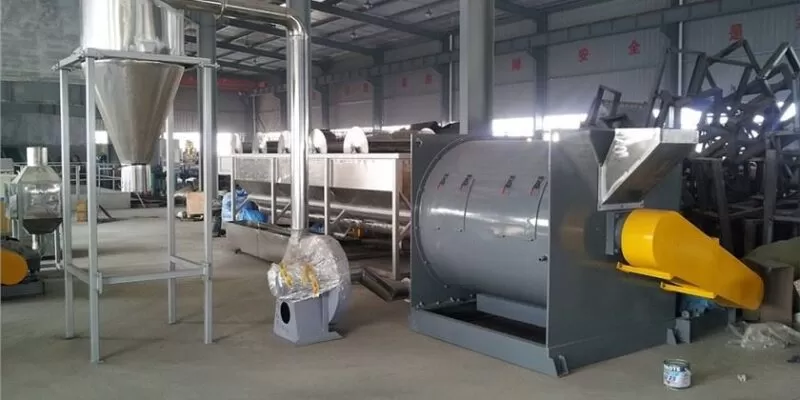In the medical industry, waste management is a critical issue. Plastic waste can accumulate rapidly, posing environmental and safety concerns. By recycling medical plastics, we can reduce waste and enhance sustainability. This practice not only addresses environmental challenges but also promotes a circular economy within healthcare.

Let’s explore how plastic recycling is transforming the medical field.
Why is Plastic Recycling Important in Healthcare?
Plastic plays an essential role in the healthcare sector. From syringes to IV bags, many medical devices are made from plastic. Recycling these materials helps mitigate the environmental impact associated with their disposal. It also allows hospitals and clinics to reclaim valuable resources.
Moreover, the healthcare sector generates a staggering amount of waste—approximately 16% of total waste globally is medical. This statistic highlights the urgency for effective recycling solutions.
Understanding the different types of medical plastics is key. Common plastics used include PET, PVC, and polypropylene. Each type has its own recycling requirements and processes. Familiarity with these materials ensures effective recycling and resource recovery.
How is Plastic Waste Sorted in Medical Facilities?
Sorting plastic waste is the first step in the recycling process. In healthcare settings, waste is categorized into general waste, hazardous waste, and recyclable materials. Proper sorting is vital to avoid contamination, which can hinder recycling efforts.
Staff training is essential. Employees must understand the importance of segregation. This practice minimizes risks and ensures that recyclable plastics are processed appropriately.
Implementing color-coded bins for different waste types can enhance compliance. Clear signage and regular training sessions can further promote effective waste management practices.
What are the Challenges of Recycling Medical Plastics?
While the benefits are clear, challenges persist in recycling medical plastics. One major hurdle is contamination. Medical waste can be contaminated with blood or other bodily fluids, making recycling more complicated.
Additionally, regulatory compliance is a significant concern. Healthcare facilities must adhere to strict regulations regarding waste disposal. This can create confusion around what can be recycled and what cannot.
To overcome these challenges, collaboration with specialized recycling companies is essential. These partners can ensure that waste is processed in compliance with regulations while also maximizing recycling potential.
How Can Medical Facilities Enhance Their Recycling Efforts?
To improve recycling rates, medical facilities should adopt comprehensive recycling programs. Conducting audits to assess current waste management practices is a great starting point. This helps identify areas for improvement.
Setting achievable recycling goals can motivate staff. Regularly communicating progress can foster a culture of sustainability within the organization.
Involving staff in the recycling process can lead to innovative ideas. Establishing a reward system for successful recycling initiatives can further enhance participation.
What Role Do Manufacturers Play in Medical Plastic Recycling?
Manufacturers have a significant role in the recycling landscape. They can design products with recyclability in mind. For instance, using single-type plastics can simplify the recycling process.
Collaboration between manufacturers and recycling facilities can also lead to the development of closed-loop systems. This ensures that materials are continuously recycled, reducing the need for virgin plastics.
By prioritizing sustainability in product design, manufacturers can contribute significantly to the reduction of medical waste.
How Do Patients Benefit from Plastic Recycling in Healthcare?
Patients stand to gain from enhanced recycling efforts as well. Sustainable practices can lead to reduced costs for healthcare facilities. This, in turn, can result in lower medical costs for patients.
Moreover, hospitals that prioritize recycling often enjoy improved public perception. Patients are increasingly drawn to environmentally responsible healthcare providers. This can enhance patient loyalty and trust.
Additionally, recycling contributes to a healthier environment. Patients benefit from cleaner communities, which is essential for public health.
What Future Trends Can We Expect in Medical Plastic Recycling?
The future of plastic recycling in healthcare looks promising. Technological advancements are paving the way for more efficient recycling processes. Innovations such as advanced sorting technologies and automated recycling systems can enhance recovery rates.
Moreover, increased awareness of sustainability in healthcare is driving change. More facilities are adopting eco-friendly practices. This shift is likely to accelerate the adoption of recycling initiatives across the industry.
Incorporating sustainable practices will become a competitive advantage for healthcare providers, aligning with patient expectations and regulatory pressures.
Conclusion
Plastic recycling in the medical industry is not just beneficial—it’s essential. By embracing sustainable practices, we can reduce waste and create a healthier environment for all. Together, let’s make a commitment to recycling and pave the way for a sustainable future in healthcare.
